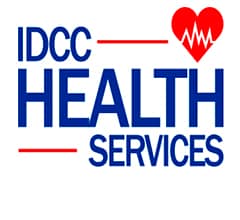In this article, we will walk you through expect at first cardiology appointment, from scheduling to follow-up care. Whether you’re going for a routine check-up or seeking help for a specific heart issue, understanding the process can help ease any anxiety and ensure a productive visit.
See the best cardiologist in Brooklyn—book now!

What happens at a cardiology appointment
Once you’ve scheduled your appointment, it’s time to prepare for what happens during the visit. Here’s what you can expect:
1. Check-In and Paperwork
On the day of your appointment, arrive a little early to complete any necessary paperwork. You’ll likely be asked to provide updated personal and insurance information, sign consent forms, and complete a medical history questionnaire. This paperwork helps the cardiologist understand your overall health and any potential risk factors.
2. Physical Examination
After completing the paperwork, you’ll meet with a nurse or medical assistant who will take your vital signs, such as blood pressure, heart rate, and weight. These measurements provide baseline information for the cardiologist to assess your heart health.
3. Discussion with the Cardiologist
Once the preliminary assessments are done, you’ll meet with the cardiologist. During this discussion, the cardiologist will ask you about your medical history, current symptoms, and any concerns you may have. Be honest and detailed in your responses, as this information is crucial for an accurate diagnosis.
4. Diagnostic Tests
Depending on your symptoms and medical history, the cardiologist may order diagnostic tests. These tests can include:
- Electrocardiogram (ECG or EKG): This test records the electrical activity of your heart and can help diagnose irregular heart rhythms or other cardiac issues.
- Echocardiogram: An ultrasound of the heart that provides images of its structure and function, helping diagnose problems with the heart’s valves, chambers, or blood flow.
- Stress Test: This test evaluates your heart’s performance during physical activity and can detect problems with blood flow to the heart muscle.
- Holter Monitor: A portable device that records your heart’s electrical activity over a 24-hour period, useful for diagnosing irregular heart rhythms that may not occur during a brief office visit.
- Cardiac Catheterization: A more invasive procedure that involves threading a thin tube through blood vessels to directly assess blood flow and identify blockages.
5. Discussion of Findings and Treatment Plan
Once the diagnostic tests are complete, the cardiologist will discuss their findings with you. If they identify any heart conditions or concerns, they will explain the diagnosis and recommended treatment options. This is your opportunity to ask questions and fully understand your condition and treatment plan.
6. Follow-Up and Next Steps
Depending on your diagnosis and treatment plan, the cardiologist may schedule follow-up appointments or recommend lifestyle changes, medications, or further interventions. It’s essential to follow your cardiologist’s guidance to manage your heart health effectively.
Reasons for a Cardiology Appointment
Scheduling a cardiology appointment is essential for various reasons related to heart health and overall cardiovascular well-being. There are several common factors that may warrant a visit to a cardiologist to ensure appropriate evaluation, diagnosis, and management of potential cardiac conditions.
One significant reason for a cardiology appointment is experiencing symptoms suggestive of heart disease. These symptoms may include chest pain or discomfort, shortness of breath, palpitations, dizziness, fainting episodes, or unexplained fatigue.
Consulting a cardiologist allows for a comprehensive assessment of these symptoms, as they can be indicators of underlying cardiovascular issues such as coronary artery disease, arrhythmias, or heart valve abnormalities.
Symptoms Leading to Referral
When your body sends signals, it’s essential to listen. Common symptoms like chest pain, shortness of breath, palpitations, dizziness, fainting episodes, or unexplained fatigue can be red flags. They might signify underlying cardiac conditions such as coronary artery disease, arrhythmias, or heart valve abnormalities. A cardiology appointment is your gateway to a thorough evaluation and proper management.
Pre-existing Conditions
Certain pre-existing conditions can significantly impact your heart health, making regular cardiology check-ups a must. Conditions like hypertension, or high blood pressure, require careful monitoring and specialized care to prevent heart disease, stroke, and other complications. Your cardiologist can guide you in controlling hypertension and reducing risks.
Preparing for Your First Appointment
Preparing for your first cardiology appointment can help ensure a productive and informative visit. Here are some steps you can take to make the most of your initial consultation with a cardiologist.
First, gather and organize your medical records and relevant documents. This may include previous test results, imaging reports, medication lists, and a detailed medical history. Having these documents readily available will provide the cardiologist with valuable insights into your health and aid in the evaluation process.
Gather Your Records: Organize your medical records, test results, imaging reports, medication lists, and a detailed medical history. This information will provide crucial insights into your health.
Share Your Story: Be ready to discuss your medical history, including previous cardiovascular conditions, surgeries, and risk factors like family history, high blood pressure, high cholesterol, diabetes, or smoking history. Transparent communication empowers your cardiologist.
Bring Documentation: Don’t forget to bring any relevant medical records, such as previous test results, ECGs, stress test results, and other pertinent information. These documents are invaluable in crafting your tailored treatment plan.
Post-Appointment Expectations
After your cardiology appointment, it is important to understand what to expect and how to navigate the post-appointment phase to continue your journey towards better cardiovascular health. Here are some post-appointment expectations to keep in mind.
Firstly, you may receive a summary of your appointment, which may include the diagnosis, treatment plan, and any recommended lifestyle modifications or medications. It is crucial to carefully review this summary and ensure that you understand the instructions provided. If you have any questions or concerns, do not hesitate to reach out to your cardiologist for clarification or further guidance.
Review Your Summary: Carefully review the summary, which includes your diagnosis, treatment plan, and recommended lifestyle changes or medications. Reach out to your cardiologist if you have any questions or concerns.
Understanding Test Results: Your cardiologist will help you understand your test results, explaining their implications for your cardiovascular well-being. This discussion forms the foundation for your next steps.
Next Steps and Follow-up: Depending on your condition and test results, further diagnostic evaluations or treatments may be recommended. Following through with these recommendations ensures comprehensive care and optimal heart health.
Conclusion
A cardiology appointment is a crucial step in maintaining or improving your heart health. Understanding the process, from scheduling to follow-up care, can help you make the most of your visit. Remember to be honest and thorough when discussing your medical history and symptoms with the cardiologist.
Additionally, don’t hesitate to ask questions and seek clarification on any aspect of your diagnosis or treatment plan. By actively participating in your heart care, you can work with your cardiologist to ensure a healthier heart and a better quality of life.
